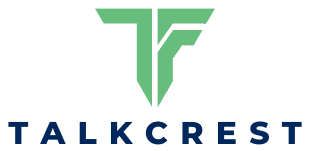Emerging technologies in 2025 are redefining how businesses operate and how innovation is achieved across industries. Below are the most impactful trends and their implications for the future.
Artificial Intelligence Driving Decision-Making
AI has advanced beyond simple automation to deliver predictive insights, dynamic personalization, and intelligent process optimization. Companies are deploying AI to forecast demand, streamline workflows, and improve customer interactions with context-aware recommendations.
Blockchain Securing Transactions and Data
Blockchain applications are extending far beyond cryptocurrency. Businesses are implementing distributed ledgers to enhance supply chain transparency, prevent fraud, and protect sensitive data. Smart contracts are automating agreements, reducing legal overhead and operational delays.
Quantum Computing Enabling Complex Solutions
Quantum computing is beginning to solve intricate problems that traditional computers cannot handle efficiently. Fields such as logistics, financial modeling, and pharmaceutical research are already benefiting from quantum-powered optimization and simulation capabilities.
Edge Computing Enhancing Responsiveness
To handle vast data generated by IoT devices, companies are turning to edge computing. By processing data closer to its source, edge architectures reduce latency, increase reliability, and support real-time decision-making in manufacturing, transportation, and healthcare.
Extended Reality Transforming Collaboration
Augmented and virtual reality are changing how teams collaborate, train, and engage customers. Immersive meetings, virtual showrooms, and simulated training environments are reducing costs and improving effectiveness compared to traditional methods.
Sustainability Through Green Technologies
Sustainability is no longer optional. Advances in energy storage, circular manufacturing, and carbon capture technology are allowing businesses to align innovation with environmental responsibility while meeting regulatory demands and customer expectations.
Automation Augmenting Human Roles
Modern robotics and intelligent automation are taking over repetitive tasks, freeing employees to focus on strategic and creative activities. From warehouses to corporate offices, automation increases accuracy, lowers costs, and enhances productivity without eliminating the need for skilled professionals.
Personalized Experiences Powered by Data
Organizations are leveraging first-party data and privacy-conscious analytics to create hyper-personalized products and services. Predictive analytics helps deliver what customers want before they ask, building stronger loyalty and competitive differentiation.
Conclusion
These emerging technology trends are not just influencing individual tools but reshaping business models and innovation strategies globally. Companies that proactively adopt these advancements will secure a competitive edge, unlock new growth opportunities, and drive meaningful transformation in their industries.
If you’d like, I can also craft a meta title, meta description, and URL slug optimized for this piece. Let me know if you want that!

